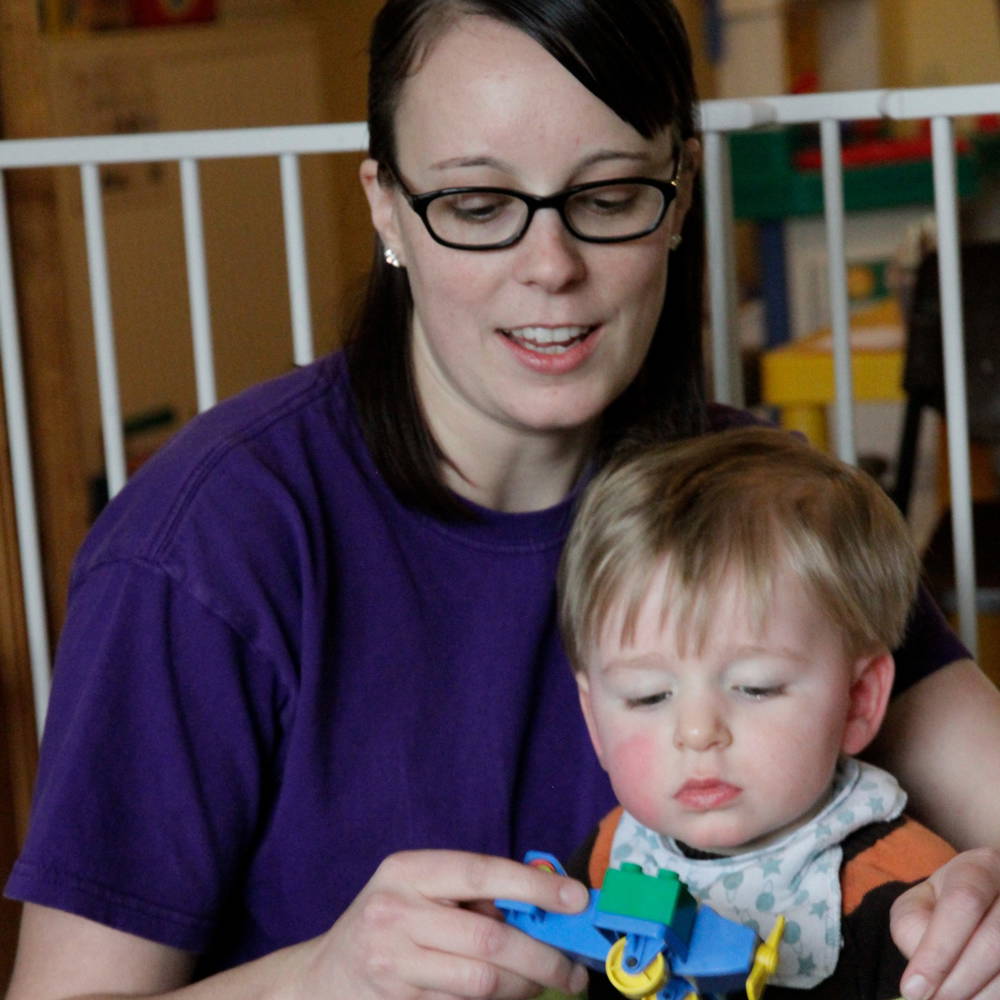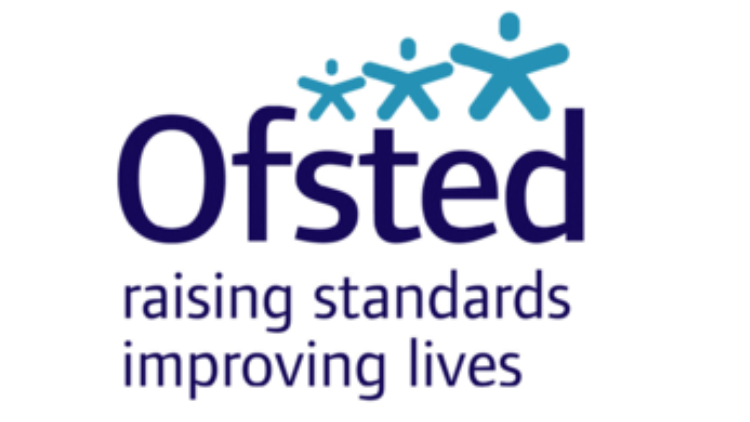Nannies
- Coram PACEY
- $
- Careers in Childcare
- $
- Nannies
Nannies are childcare professionals who work at the home of one family at a time, and are employed by a parent rather than being self-employed. Nannies often have sole charge of a family’s children, and can also work for two families at once as part of a nanny-share arrangement.
Being a nanny can be such a rewarding job. Nannies form close bonds with the children they care for, looking after their daily needs and early education in the family home.
“Working as a nanny can be a bit lonely, but being part of Coram PACEY really gives you extra support.”
Lucia, Nanny Network
Whether you’re interested in being a nanny in England or in Wales, you’ll find information here on the training and registration or approval processes. You’ll also discover the many benefits of joining Coram PACEY as a nanny member, helping support your career choice now, and for the future.
What does the job involve?
Most nannies consider their job to be looking after every aspect of a child’s wellbeing. providing a safe nurturing environment that is fun and stimulating for the children.
There are fundamental responsibilities of every nanny’s role, these are:
- Child welfare, safeguarding and health and safety
- Working in partnership with parentship with parents
- Promotion of equality, diversity, and inclusion
Typical duties usually include:
Planning and supporting play and educational activities while setting routines and age-appropriate boundaries.
Depending on the age of the child you could be caring for a baby providing new-born and night care or you could be caring for siblings of various ages.
Toileting training children.
Doing nursery and school runs, and taking children to appointments and activities and organising play dates with other children
Preparing meals for children.
Cleaning children’s bedrooms, bathrooms and playrooms and other light household duties.
Communicating with parents about their child/ren’s learning and development.
It’s worth remembering that not all nannies’ roles are the same. The duties of the nanny will depend on the type of nanny and requirements of the family. Nanny posts vary greatly in terms of working hours, location, perks and pay. Before you apply for a position as a nanny, consider the following points:
Types of Nanny
Your Title Goes Here
Your content goes here. Edit or remove this text inline or in the module Content settings. You can also style every aspect of this content in the module Design settings and even apply custom CSS to this text in the module Advanced settings.
Live-in nannies
Live-in nannies live with the family in their home, and the family will provide the nanny with their own bedroom, and usually their own bathroom (although they may share this with the children). Sometimes nannies have separate accommodation such as a studio or flat.
A live-in nanny normally works for 11 to 12 hours a day, five days a week, and is often expected to offer an additional two or three evenings’ babysitting each week – although the exact working hours will depend on the family.
Live-in nannies are generally paid less than live-out nannies because they receive accommodation and food as part of the job package, although nannies with separate accommodation are entitled to the minimum wage. More information about the minimum wage is available from the Acas Pay and Working Rights helpline on 0300 123 1100.
There may be positions where the nanny is expected to provide 24-hour cover, five or six days a week. These positions are usually abroad and salaries slightly higher.
Live-out nanny
A live-out nanny travels to the family’s house each day. Live-out nannies generally work for up to 12 hours a day, five days a week, and may be required to do evening babysitting as well. This may be included in the salary or paid as extra.
Live-out nannies can also be part-time offering flexibility for families who don’t require full-time childcare. Sometimes their schedules may vary according to the parent’s irregular work hours, such as shift work, or other specific needs.
Live-out nannies sometimes work in nanny share arrangements, where two or more families employ the same nanny to either care for all children at the same time or to work part time in each home, for example, three days with one family, and two days with another.
Night nanny
A night nanny has a special knowledge of caring for babies from new-born up to one year old. They may be hired for anything from a few nights to several weeks and usually work eight to 12 hours a night. The night nanny is expected to take care of all the baby’s needs throughout the night, such as changing the baby, settling the baby, supporting the baby to get into a good sleep pattern and feeding the baby (either by taking the baby to the mother to breastfeed or bottle feeding using expressed milk or formula).Most night nannies have significant baby experience and usually have a qualification in caring for new-born babies and new mothers such as the Maternity Nurse Training by Babyem, or other specific maternity qualifications such as sleep training, midwifery or nursing qualifications.
Shared nannies
Shared nannies are becoming increasingly common – this is where two or more families share a nanny between them. This can work well for all involved, but the employment and tax situations can be complex, and it’s worth investing time in getting appropriate advice. It is important to note that although nannies can work with as many families as they like, they can only care for children from two families at any one time.
Specialist nannies
Some nannies take on specialist roles. For example, a nanny qualified in special education needs and disability (SEND) can provide bespoke solutions that meet unique needs of a family. They tend to offer support to the family alongside childcare, to help families navigate the field of SEND.
Other types of specialist nannies could be a unique pedagogical approach. Take Emmy Benjamin, The Woodland Nanny for example. Inspired by forest school sessions and the benefits of being outdoors that not only she felt but were recognised in the children she cares for, she has developed her whole ethos around outdoor learning. Read more about her career as a nanny in our Q and A feature in the Summer 2025 issue of Childcare Professional magazine. Other pedagogical specialisms such as Montessori or Froebelian can offer tailored approaches to childcare.
Where the needs and wants of families match specialist skills held by those who also provide childcare, the range of specialisms, from chefs to horse groomers could be limitless!
After school
After school nannies work with school-aged children that are usually 5-years and older. They will typically pick children up from school and take children between after-school activities, help with homework and provide an evening meal.
Nanny educator/tutor
Some parents choose to supplement their child’s core education and employ and nanny educator/tutor. This could be in specialist subjects such as music, sport or immersive language experiences.
Holiday or travel nannies
These nannies accompany families on holiday and are available for short-term or extended stays, tailored to the family’s plans. They ensure children have fun, stay safe and enjoy their holiday – giving parents the time to relax at the same time.
Nanny house manager/PA
A nanny house manager, or nanny PA (personal assistant) as they are sometimes known, combine roles of childcare and household management. When the children are at home then the Nanny PA’s priority is their care. Once the children are in school, then they take on household management duties such as organising and booking family holidays/itineraries, diary management, dry cleaning, pets (walking/vet), organising household/car repairs, and ordering groceries. Of course, every family and household will be different so duties will vary.
Au pairs
Au pairs are, typically, young individuals from other countries who come to live with a family to provide childcare and can be asked to assume some light household tasks. Arrangements can vary, but typically this is in exchange for room, board and a monetary allowance. It is important to note that Au pairs are entitled to the National Minimum Wage and National Living Wage but if accommodation is provided by the employer, this will need to be taken into account when calculating the National Minimum Wage or National Living Wage, for more information see the GOV.UK guidance here Employing someone to work in your home: Au pairs – GOV.UK.
Finding work as a nanny
If you’re looking to become a nanny, or searching for your next position, you might consider joining a nanny agency.
An agency can help you find a job with a family looking for help. The nanny agency will perform the necessary pre-employment checks, such as getting references and processing your Disclosure and Barring Service check.
Using a nanny agency as an intermediary also provides you some protection when searching for a job, as you know that the families, you’ll come into contact with are also registered with the agency.
Interested and what to know more?
Training is key to your professionalism. It gives you the confidence and skills you need to do the best job you can. And if you’re just starting out, Coram PACEY’s training course in home-based childcare meets all the requirements.
Find out everything you need to know about becoming a nanny in England and Wales.

Becoming a Nanny in England

Becoming a Nanny in Wales
Want more support as a nanny?
Find out more about Coram PACEY’s Practitioner memberships that are tailored to support nannies with all aspects of their profession including:
- Training
- Advice
- Products
- Policy & Updates


Latest News
Keep up to date with everything that's happening in the childcare sector



